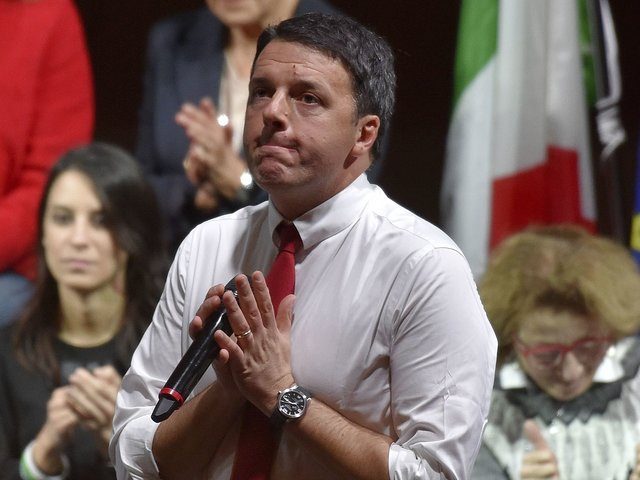Italians will vote on a referendum for reforming the senate on Sunday, but the implications for a loss could collapse the Italian government and threaten the Eurozone.
The Italian referendum on Sunday, December 4th, is at face value a vote on constitutional reform of the senate that would limit the power of the upper house of parliament to veto bills, among other proposed amendments to the constitution.
Critics see the move as an authoritarian one by Prime Minister Matteo Renzi, who has staked the fate of his ruling coalition government on the result. Renzi claims that the reforms are needed to end the traditionally chaotic system of government since the end of the Second World War which has led to dozens of ruling coalitions rising and falling.
The reform would, in practice, dramatically shrink the number of senators from 315 to 100, strip away its powers over the national budget, force the body to focus on regional, rather than national, issues, and make it unable to dissolve the parliament.
Opposition to the reforms, which include a list of over 50 legal scholars, say that the reforms will remove checks and balances of the Italian democratic system. Some have even warned it would create a system ideal for another figure like Benito Mussolini to emerge.
Prime Minister Renzi has staked his government on the result saying that he will resign if the No campaign wins. Earlier this week, he said he regretted making the referendum a vote about him personally – rather than the issues – as polls have shifted from a pro-Yes vote in the early days of the campaign to a pro-No vote.
The prospect of a new election would, according to polls, likely lead to the victory of the Five Star Movement (M5S) and its leader Beppe Grillo who support the No campaign.
The Eurosceptic party has some worried that the No vote could affect the stability of the European Union (EU) itself as Grillo supports a referendum on Italy’s membership in the euro currency. Analysts at Citi Bank have called the potential result the biggest threat to the EU since Brexit.
The instability of government would also come at a time when the Italian banking system is facing a crisis. Italy’s oldest bank, Banco Monte dei Paschi di Siena (MPS), faces billions in bad debt and is unable to be bailed out by the Italian government due to EU regulation. Instability could, as some analysts predict, lead to capital flight by private investors which could collapse the bank and lead to a potential existential crisis for the euro.

COMMENTS
Please let us know if you're having issues with commenting.